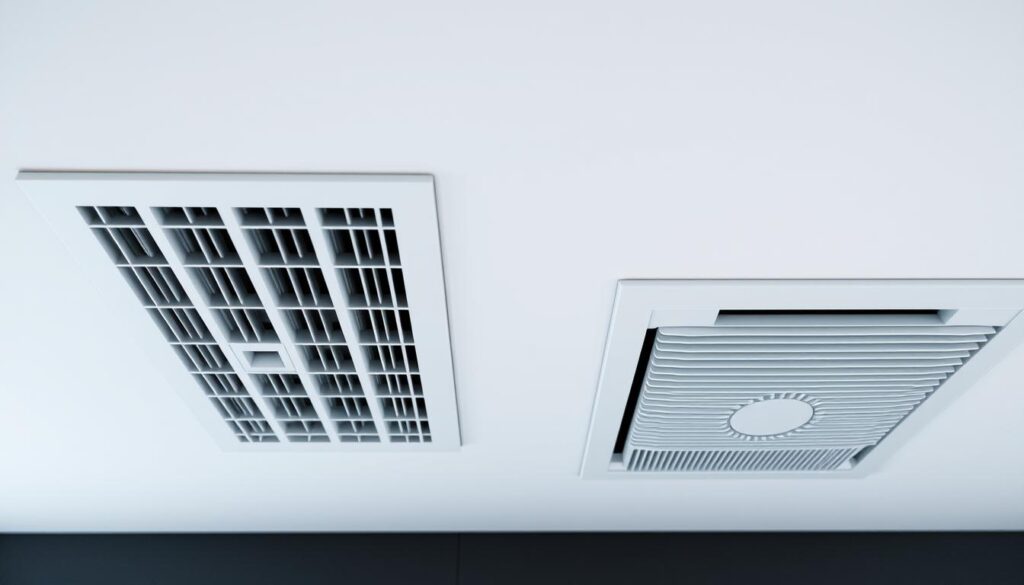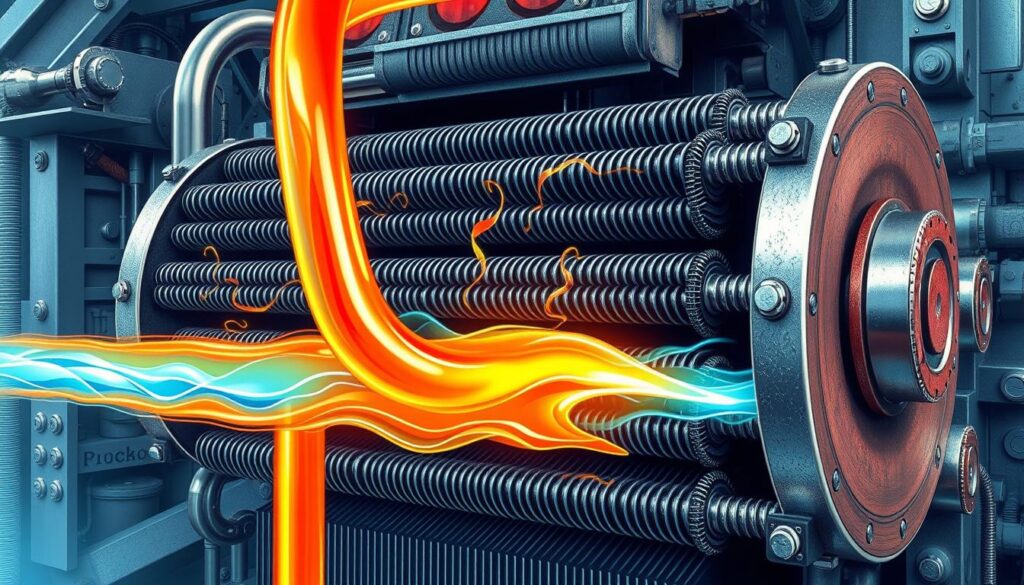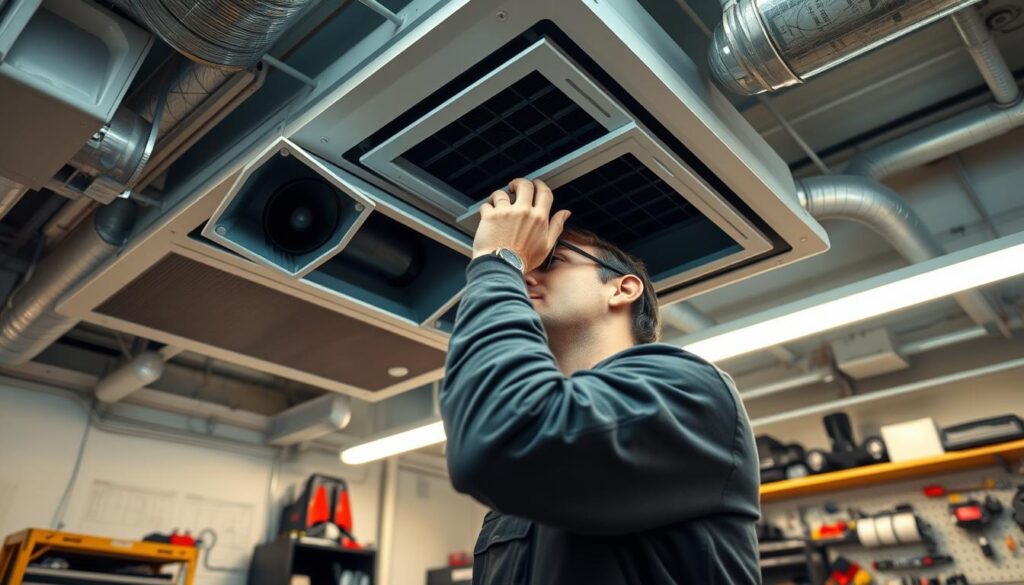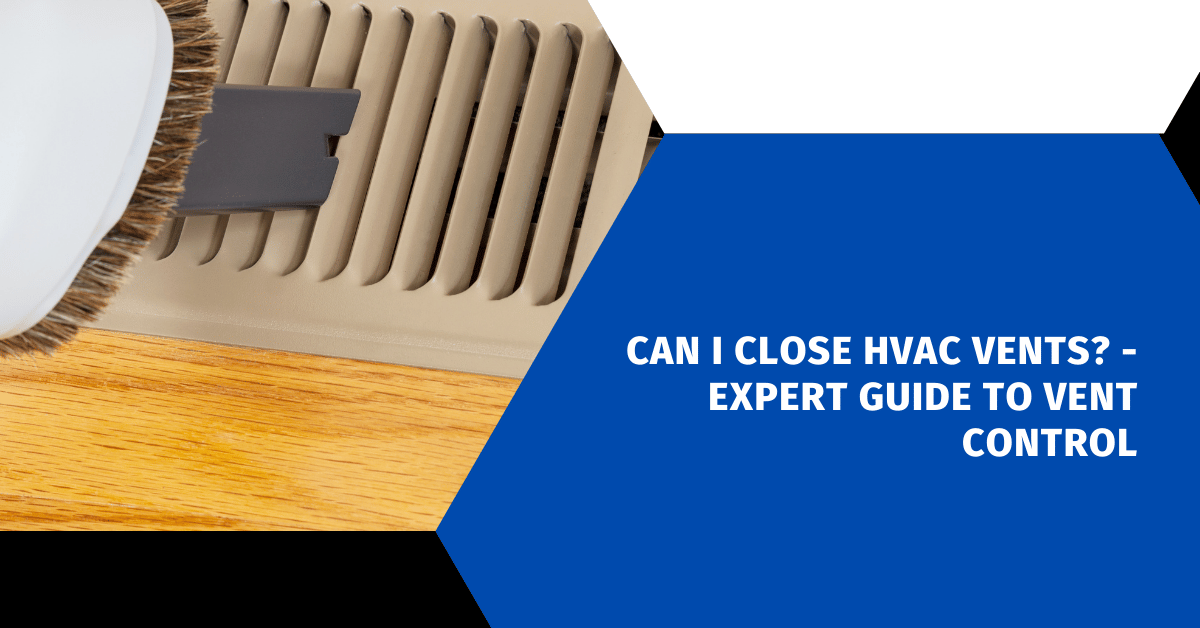Affiliate Disclosure
HVAC Guide Guys is a participant in the Amazon Services LLC Associates Program, an affiliate advertising program designed to provide a means for sites to earn advertising fees by advertising and linking to Amazon.
Can I Close HVAC Vents? Ever thought about closing HVAC vents in unused rooms to save on energy bills? It’s a common idea, but the truth might surprise you. As an expert in home comfort and energy efficiency, I’m here to guide you on HVAC vent control. I’ll help you understand the real effect of closing your air vents.

Key Takeaways
- Closing HVAC vents can increase pressure in the ductwork, potentially causing damage to your system’s components.
- Contrary to popular belief, closing vents does not save energy and can actually increase your utility bills.
- Experts recommend keeping air vents open and unobstructed to maintain even airflow and prevent issues like mold growth and safety hazards.
- Alternatives to closing vents, such as zone control systems and temperature management strategies, can help optimize your HVAC system’s performance.
- Regular maintenance and professional inspections are crucial for ensuring the efficiency and safety of your home’s HVAC system.
Table of Contents
Understanding the Basics of HVAC Vent Control
HVAC vents are key in spreading air throughout your home. They help keep the air flow balanced, which is crucial for your HVAC system’s efficiency. Yet, many people don’t fully understand how these vents work.
How HVAC Vents Function in Your Home
Your home has two types of vents: return and supply vents. Return vents pull air in, clean it, and send it to the HVAC system. Supply vents then spread this air to different rooms, keeping the temperature and air quality right.
It’s important to have the right air flow through these vents. This ensures the temperature is even and your HVAC system works well. Problems like bad design or blockages can mess up this balance, wasting energy and causing uneven heating.
Common Misconceptions About Vent Control
Some think closing vents in unused rooms saves energy. But this isn’t true. Closing vents can actually mess up the system’s balance, causing many issues.
The Role of Proper Airflow in HVAC Systems
Good air flow is key for your HVAC system to work right. The blower pushes air at a certain pressure. Closing vents can raise this pressure, stressing the blower and possibly causing problems like frozen coils or compressor damage.
Keeping your HVAC vents clean and in good shape is vital. This includes cleaning, checking for damage, and changing air filters. It helps your system run better and saves energy.
Explore Our HVAC Shop
Looking for top-rated HVAC tools, parts, and accessories? Visit our shop and find the perfect solution for your needs.
Visit the ShopCan I Close HVAC Vents? The Truth Revealed
Managing your home’s HVAC system can seem simple. Closing vents might seem like a way to save energy and direct airflow. But, closing vents is not usually recommended. It can harm your system’s efficiency and performance.
Closing vents can increase your HVAC system’s pressure by up to 20%. This strain can cause duct leaks, losing up to 30% of conditioned air. This leads to less efficient heating and cooling and higher energy bills.
Also, closing vents in unused rooms can make your HVAC system work harder. This can reduce its efficiency by up to 15%. It can also shorten your system’s life, leading to expensive repairs or an early replacement.
| Issue | Impact |
|---|---|
| Increased system pressure | Up to 20% increase |
| Duct leaks | Up to 30% of conditioned air lost |
| Reduced HVAC efficiency | Up to 15% decrease |
| Potential system damage | Shorter lifespan, higher repair costs |
Experts say to keep your HVAC vents open for even airflow. This prevents mold, condensation, and safety hazards. Instead of closing vents, consider a zoned HVAC system or other energy-saving options.
Closing HVAC vents might seem like a quick fix. But, it can actually harm your system. Keeping vents open ensures your HVAC works well, protects your home’s air quality, and keeps it comfortable.
The Impact on System Pressure and Performance
Closing HVAC vents in your home can really affect the system’s pressure and performance. Shutting vents restricts airflow, causing static pressure in the ductwork to rise. This can lead to problems that harm your HVAC equipment’s efficiency and lifespan.
Effects on Blower Motor and Compressor
The increased pressure in the ductwork slows down the blower motor. This reduces airflow in your home. The HVAC compressor also works harder, which can shorten its life.
Understanding Static Pressure Issues
Static pressure is key for good airflow in your HVAC system. When it goes up because vents are closed, you might face issues like poor return air and duct leaks. This can damage important parts like the compressor.
Potential System Damage
Closing too many vents can upset your HVAC system’s balance. This can make the air handler work too hard and the compressor strain. These issues can shorten your system’s life, raise energy costs, and lower home comfort.
To keep your system running well and avoid damage, it’s important to know how closing vents affects it. Look for better ways to improve comfort and energy use without harming your HVAC equipment.
Energy Efficiency and Cost Implications
Many think closing vents saves energy and lowers bills. But, it can actually increase energy use and HVAC costs over time.
Closing vents makes your HVAC system work harder. This strain leads to more energy use. Studies show closing over half of vents can greatly reduce energy efficiency.
This can significantly raise your energy bills. Closing vents might not save much energy. It can even wear out your HVAC system faster.
“Closing air vents can lead to an increase in energy bills rather than savings.”
Instead of closing vents, HVAC experts suggest better ways to save energy and cut HVAC costs. These include:
- Sealing and insulating your home to reduce air leaks
- Using a programmable thermostat to better manage temperatures
- Regular HVAC maintenance to keep your system efficient
- Upgrading to energy-efficient HVAC systems, like those with ECM blowers or variable-speed compressors
These smart choices can boost energy efficiency and lower utility bills. They help your HVAC system work better and last longer.
Explore Our HVAC Shop
Looking for top-rated HVAC tools, parts, and accessories? Visit our shop and find the perfect solution for your needs.
Visit the ShopRisks of Mold Growth and Moisture Problems
Closing HVAC vents can lead to mold growth and moisture issues in your home. When vents are closed, airflow is blocked, causing moisture to build up. This dampness is perfect for mold to grow, which can harm your health.
Condensation Formation in Closed Vents
Mold loves warm, moist places, and closed vents are ideal. Without airflow, moisture turns into condensation, allowing mold and mildew to grow. This musty smell is a sign mold is in your ductwork or HVAC system.
Health Implications of Mold Development
Being around mold can cause many symptoms. These include coughing, sneezing, and breathing problems. It can also make you feel tired, nauseous, and even cause diarrhea. For people with breathing issues, mold can be especially dangerous.
It’s important to keep your HVAC system dry and well-ventilated. Regular maintenance and mold removal by professionals can help. This keeps your air clean and your family healthy.
| Symptom | Prevalence |
|---|---|
| Coughing | High |
| Sneezing | High |
| Nasal Blockage | Moderate |
| Itchy Eyes | High |
| Breathing Difficulties | High |
| Nausea | Moderate |
| Fatigue | Moderate |
| Diarrhea | Low |
“Mold spores flourish in warm and moist environments, which can lead to mold growth in air ducts within properties with high humidity levels, lacking ventilation, or areas with trapped moisture that causes condensation.”
Safety Concerns and Heat Exchanger Issues
When you close vents in your home’s HVAC system, safety risks arise. One major concern is carbon monoxide infiltration. A broken or faulty heat exchanger can release this deadly gas, endangering your family’s health.
Closed vents can also cause the heat exchanger to overheat and crack. This can lead to dangerous gas leaks. In fact, faulty HVAC equipment is responsible for about 400 U.S. deaths each year. It’s vital to ensure proper airflow to keep the heat exchanger safe and prevent cracks.
“Closing HVAC vents can lead to an increase in pressure within the ductwork, potentially causing minor leaks or exacerbating existing ones.”
Blocked airflow can also cause other safety hazards. Increased pressure in the ductwork can lead to leaks. These leaks can cause moisture buildup and mold growth, posing serious health risks.

To keep your home and family safe, monitor your HVAC system closely. Regular maintenance and inspections by a skilled technician can catch and fix problems early. This helps prevent dangerous situations.
Explore Our HVAC Shop
Looking for top-rated HVAC tools, parts, and accessories? Visit our shop and find the perfect solution for your needs.
Visit the ShopSmart Alternatives to Closing Vents
Closing HVAC vents might seem like a quick way to save energy. But it can actually harm your home. Instead, look into smarter ways to control your home’s temperature and save energy.
Zone Control Systems
Consider getting a zone control system for your HVAC. It lets you divide your home into zones with their own thermostats. This way, you can control the temperature in each area without closing vents.
Modern HVAC Solutions
Upgrading to a smart HVAC system is another option. Smart thermostats learn your preferences and adjust the temperature for you. HVAC zoning systems let you control the temperature in specific rooms or zones.
Temperature Management Strategies
There are also ways to manage temperature without new equipment. Properly placing air vents and cleaning them regularly helps. Gradually adjusting vent closure can also improve your home’s comfort and energy use.
Always talk to HVAC experts to find the best solutions for your home. These smart alternatives can help you control temperature better, save energy, and enjoy a more comfortable home.
Professional Maintenance and System Optimization
Keeping your HVAC system in top shape is key for great performance and saving energy. Regular checks and tune-ups by HVAC professionals catch problems early. This prevents them from getting worse.
It’s best to keep your air vents open and clear. Closing more than 75% of them can mess up your system’s airflow. Experts can give you advice on how to manage airflow without blocking vents too much.
- Proper vent positioning and adjustment is key to maintaining balanced airflow throughout your home.
- Adjusting vent louvers can help you control the amount of airflow without completely shutting them down.
- Regular HVAC maintenance and system optimization by a professional HVAC service provider can identify and address any underlying issues that may be impacting your system’s efficiency.
Working with skilled HVAC experts ensures your system works its best. This means more energy savings and a cozy home for your family.

“Regular maintenance and tune-ups are essential for keeping your HVAC system running smoothly and efficiently. Don’t wait until a problem arises – proactive care can save you time, money, and headaches in the long run.”
Conclusion
Closing HVAC vents is not a good idea for better HVAC efficiency, home comfort, or energy savings. While it might seem to help a bit, it can really hurt your system’s performance. It also messes with the airflow management inside your home.
Keeping the right airflow is key for your HVAC system to work well. Closing vents can cause high duct pressure, make the system less efficient, and even damage it. It can also be dangerous. Instead, think about getting smart zone control systems or modern HVAC that saves energy and heats better.
The best way to keep your home comfy and save energy is to work with expert HVAC techs. They can set up the right system for you, keep it running smoothly, and find ways to save energy without harming your equipment. By focusing on good airflow and system care, you’ll have a cozy, energy-saving home all year.

